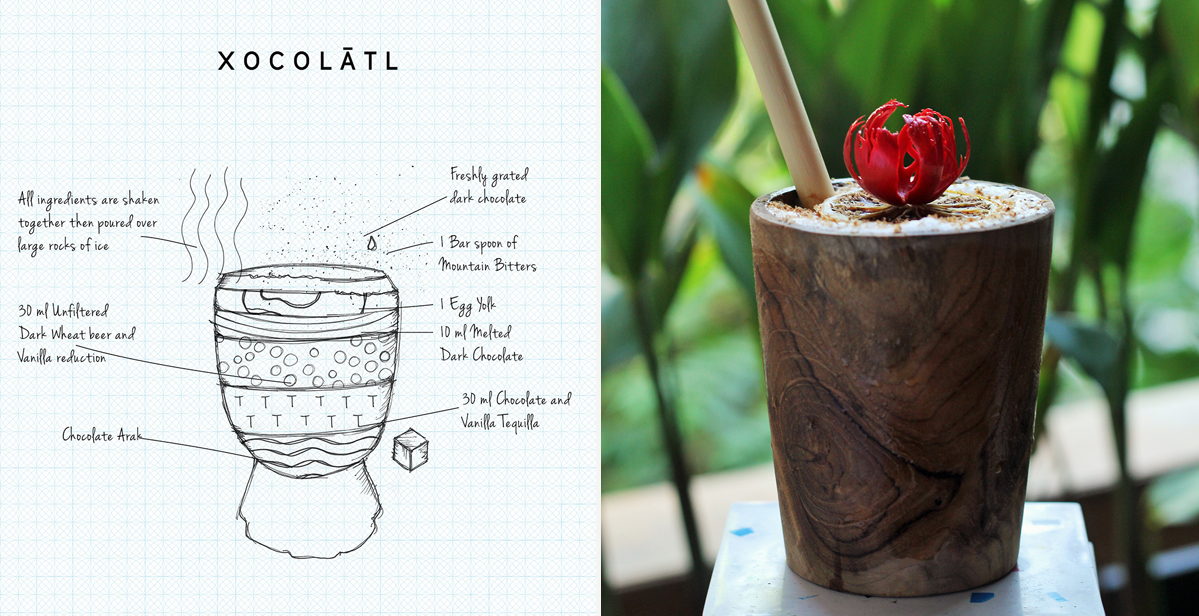Akademi Bar, Bali
Cocktail legend Dre Masso uses indigenous ingredients from across the Indonesian archipelago for authentically tropical drinks

When Ronald Akili opened the very first Potato Head establishment, Jakarta was aswarm with boring replica restaurants from abroad and wine bars with snooty attitudes. This didn’t sit right with the well-traveled, good-vibes seeker, so in 2009 he set out to create a proper bar with “just really good cocktails,” he tell us. The mission was simple enough: offer classic drinks with a local twist and comforting dishes to match. But while Akili—a self-described Negroni guy—appreciated high-quality cocktails, since he was an art gallerist and real estate developer at the time, he wasn’t the professional barman for the job. For that, he looked to industry legend Dre Masso.

The pair were introduced through a mutual friend and hit it off straight away, thanks to a shared interest in using locally sourced produce and learning as much as possible about it—a philosophy they call “root to flower” and the premise for their next project, a bar called Akademi. Located in the lobby of Katamama, Akili’s boutique hotel adjacent to the Potato Head Beach Club in Bali, Akademi is a space where their own bartenders and those invited from around the world can come and connect, and spend some time doing R+D with raw Indonesian ingredients.

To add even more depth to their development process they decided to create case studies focused on single indigenous materials. Masso kicked it off with the cocoa bean, one of the archipelago’s most important agricultural exports. He concocted XOCOLĀTL, a deliciously indulgent cocktail comprised of chocolate Arak, chocolate and vanilla tequila, unfiltered dark wheat beer and vanilla reduction, melted dark chocolate, an egg yolk, and a spoonful of mountain bitters, which are shaken up, poured over large rocks of ice and topped with freshly grated dark chocolate.

Each month a new ingredient is selected and one of Katamama’s bartenders takes the helm in experimenting with how to get the most from it by utilizing all of its possible parts. The resulting research and recipes take the form of menu activations, with the latter broken down for patrons via instructional illustrations. Now on their 12th case study, past beverages have explored the tropically ubiquitous coconut (although Indonesia is the world’s second largest producer), chasteberry (historically used as a libido suppressant), kaffir lime (believed to avert evil spirits) and other Southeast Asian specialties.
Surprisingly particular to Indonesia specifically was Case Study #003: nutmeg. Now a common spice found on supermarket shelves, nutmeg—or, Myristica Fragrans—was, until the mid-19th century, only produced on the islands of Banda and Molucca. But as Akademi’s consulting group beverage director Kamil Folton (who co-founded the site The Indigenous Bartender along with Masso) tell us, the wildest ingredient they’ve investigated so far is assam kranji. The grape-sized fruit is only ready for harvest once every three years between January and April, and bears a flavor similar to tamarind but sweeter and more powder-like.

The explorations not only make for more authentically Balian cocktails, but Folton tells us they also encourage the bartenders to take pride in their region and in turn can share that knowledge with guests. Although, it’s not only at Akademi that you’ll glean insights about Bali’s beautiful culture; with every visit to Katamama we learn more about its extensive history of craftsmanship because the entire property (and its contents) are built by local artisans using time-honored techniques.
Most profound is its foundation, designed by Indonesian architect Andra Matin, which features a stunning brick pattern that lets in various amounts of light throughout the day. Watching the shadows dance around with a Molucca’s Sour in hand-makes for a uniquely enlightening drinking experience.
Images and illustrations courtesy of PTT Family












